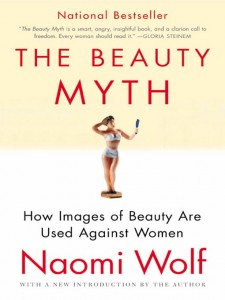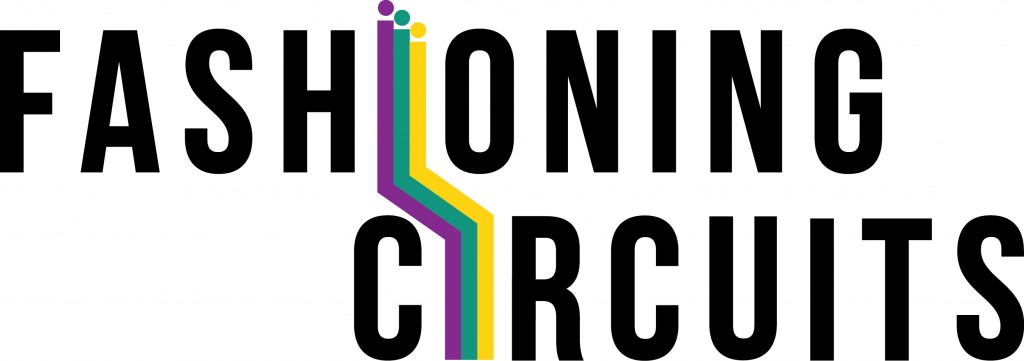
Before I started reading The Beauty Myth: How Images of Beauty Are Used Against Women (Naomi Wolf, 1991) I was thinking: “oh great, another book that will tell me how women are influenced by magazines, big news”. But I’m glad to say I was mistaken.
The Beauty Myth talks mainly about how low self-esteem in women has a gigantic economic and political value for the market. How so? Well, if you’re a woman, just think about all of the cosmetics, make-up, diet pills, and clothes you purchased in the past 6 months. Will you buy new make-up when you run out? Will you buy new clothes when winter collections arrive? If you are anything like most women, you would answer yes to both questions (if you didn’t, I’m very proud of you). With that in mind it’s simple to understand why our low self-esteem is lucrative: according to the book, the cosmetic industry moves $20-bilion a year and the diet industry $33-billion, not to mention the 300-milion cosmetic surgery industry. No wonder the industries want us to feel like we are not enough. They need us to keep consuming. And if we feel good about our bodies, we won’t.
At first sight all of this could seem like a conspiracy theory, but it makes a lot of sense. We have the culture of consumerism, the culture of “beauty is pain”, the culture of “you just need to work hard enough and you’ll get what you want”. These three become the culture of debt, the culture of anorexia and bulimia, the culture of guilt. But it moves the market, so we all accept it and try not to think too much about consequences. This book is all about the consequences.
In one of the chapters, called “Hunger”, the author tells about her struggle with anorexia and states: “I knew my parents wanted me not to starve because they loved me; but their love contradicted the message of the larger world, which wanted me to starve in order to love me.” The idea of the Beauty Myth does not come from our parents, in fact, it’s not even about our real image itself. Of course TV and ads do not help our self esteem, but it’s a lot more than that: it’s the way we are led to think. Let’s link this thought to this blog subject: fashion.
When we (women) go to a clothing store and it does not have our size, and the clothes can’t seem to fit or flatter us, what is the first thought we have? I’m fat, or I need to lose weight, or I need to work out. We never think that maybe, just maybe, the store has unreal sizes. When we look at make-up ads in magazines we never think: oh, this is totally photoshoped. We think: if only I had that skin. We boycott ourselves. We think that everybody is right and we are wrong, because well, if they only make small sizes, must be because everybody is small right? The industry plays mind games with us. And we are too worried about measuring up to actually see the truth. It definitely influences our relationship to fashion. Because fashion should not be about skinny models, it should be about clothes and style, period. And we do not need a certain body-type to know what we like.
One might start wondering: so I shouldn’t wear make up? I shouldn’t lose weight or buy pretty clothes? But the point of the author is larger than that. Her point is that we need to have the freedom to choose. To choose if we want to wear make-up or not, to choose what we are going to eat without feeling guilty. The freedom to go to a fashion store and not feel bad about ourselves. So if you are a girl who loves make up, you should wear it. But wouldn’t it be better if you felt like you’re wearing it because you want to, and not because you feel ugly without it?
Even though the book is very feminist in some points (I don’t believe saying that men are twice smarter than women is a good argument for anything, even if you can back it up with research),The Beauty Myth is an important book for every woman to read and be aware that she is good enough. Whatever way she chooses to be.
————————————————————————-
The video below is a great example of how, even though woman are trying to change this scenario, the media just won’t let it happen. The video is about the new “diet Pepsi” can, which was launched on NYFW and Pepsi states that it was made to “celebrate beautiful and confident women”. Some women’s rights groups found that the can, which looks like a thin version of a Pepsi can, contribute to making women feel like they need to be thin. And they spoke out about it – but the media did not take it seriously.

Leave a Reply
You must be logged in to post a comment.